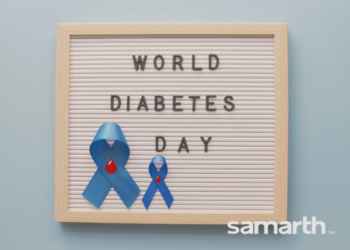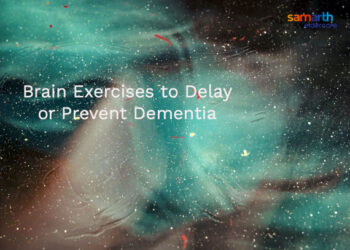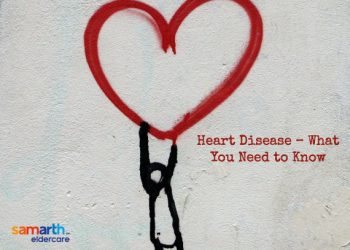Dementia is a medical term used to describe a host of symptoms which affect your memory, social skills, and cognitive function severely enough to impact your daily life. Dementia can broadly be grouped into two types, irreversible and reversible. Alzheimer’s disease is the most common cause of dementia and unfortunately, there is no cure for it available yet. However, there are certain other medical conditions, which mimic Dementia symptoms, and this type of dementia symptoms can be reversed in some cases, if the underlying medical condition causing them is treated. We take a look at 6 common treatable diseases that mimic dementia in this article.
- Diabetes
According to a recent study published by Union Ministry of Family and Health Welfare (MoFHW), over 26% of urban respondents (above 60 years of age or more) in India, have been diagnosed with elevated blood sugar levels. When the body doesn’t get the right amount of glucose to keep the blood vessels functioning properly, it can lead to the onset of dementia like symptoms.
If a senior has undiagnosed diabetes, it can be a reason behind their memory problems, confusion, and mood swings. Treating for diabetes as soon as possible can help in reversing these symptoms. Consult your physician and ask to test for diabetes if you’re in doubt.

Join Now >
- Thyroid disease
The thyroid gland is a small organ that create and release hormones which helps your body perform many vital functions. Any dysfunction in the thyroid gland is broadly called thyroid disease. Symptoms of thyroid disease are often mistaken for normal signs of ageing, as the disease itself develops very slowly in a person. Too much secretion, or even too little secretion of thyroid hormones can result in a person showing dementia-like symptoms.
Luckily, this problem can be usually diagnosed by a blood test to measure thyroid levels, and then treatment can vary from medications to surgery.
- Excessive Drinking
It is a well known fact that heavy drinking over a period of time destroys parts of the brain which are vital for decision making, memory, and thinking. These key parts of the brain may suffer from vitamin deficiency, as a result of over consumption of alcohol.
A lack of thiamine or vitamin B1, in your diet can result in memory impairment, confusion, and frequent agitation which are all tell-tale signs of dementia as well. Abstaining from alcohol and improving your diet is the first step in treating this problem, however it is advised to speak to your physician for further guidance.
- Lung/Heart conditions
The heart and lungs are responsible for supplying the brain with the sufficient oxygen and nutrient it needs for it to function properly. When a clogged blood vessel or a lung condition interferes with this important process, it can cause vascular dementia.
Vascular dementia is the second most common form of dementia, after Alzheimer’s disease. It is caused due to a lack of blood flow to the brain, which leads to insufficient oxygen intake of the brain and causes a decline in cognitive function.
- Tumours
Slow growing tumours in the brain, whether they are benign or malignant, may cause dementia like symptoms in rare cases. When tumours interfere with how the brain functions, it can lead to memory loss and noticeable personality change, among other noticeable symptoms.
- Vision/Hearing Problems
Having difficulty in hearing or seeing well can very easily be misdiagnosed as showing sings of dementia. Neglecting these problems could eventually cause actual cases of cognitive impairment. It is strongly advised to get regular eye check ups and also pay a visit to an ENT specialist if you feel like your hearing is compromised.
To know more about the root cause of dementia, click here and to find out tips on how to prevent dementia symptoms, click here.











